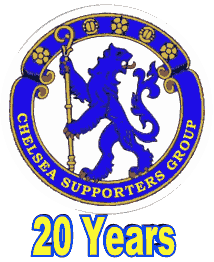Bored Fan Club: Key Crypto Terms Explained
From the official FSA.Org website:
The FSA has been tasked by its membership to look at the growth of cryptocurrency in the game and part of that is educating supporters on the issues that surround it.
Despite now being in the news for a number of years, coverage of the technology is often oblique, inaccessible or overly credulous – and sometimes all of the above.
That’s why we’ve put together this short plain-English guide to help our membership understand the issues at play.
Background: An intro to blockchain, NFTs & DAOs
The most relevant definitions you’ll need to get on top of are blockchain, non-fungible tokens (NFTs) and decentralised autonomous organisations (DAOs).
What is the blockchain?
Simply put a blockchain is a digitally distributed, public ledger that exists across a computer network – they’re best known for their role in cryptocurrency systems, such as Ethereum and Bitcoin, for maintaining a decentralised record of transactions.
The blockchain differs from a traditional database in how it stores new entries. New entries on a blockchain are stored in blocks of code that are then linked together via cryptography.
As new data comes in, it is entered into a fresh block. Once the block is filled with data, it is chained onto the previous block, which makes the data chained together in chronological order.
NFTs
Like physical money, cryptocurrencies are fungible, meaning that they can be traded or exchanged one-for-one. For example, one bitcoin is always equal in value to another bitcoin, in the same way that some goods (a litre of petrol, or a kilogram bag of rice) are mutually interchangeable. This is what makes money and cryptocurrencies useful for transactions in an economy.
However, NFTs (Non-fungible tokens) diverge in that they are unique assets on the blockchain – while every bitcoin is equal in value and just like another bitcoin, NFTs are designed to be unique and incomparable with each other.
Due to their unique identifying codes on the blockchain, it is impossible for one non-fungible token to be equal to another. NFTs can represent anything – art, commercial assets, membership rights – but it’s important to remember you are not buying a tangible good when buying an NFT, you are effectively buying a place in line.
DAOs
A decentralised autonomous organisation (DAOs) is an ownership model made up of tokens held on the blockchain: there is no central authority and power is distributed across token holders who collectively cast votes.
All votes and activity through the DAO are posted on a blockchain, making all actions of users publicly viewable.
Advocates of the DAO model claim it is a democratic and decentralised version of ownership. Crucially, however, it is not the same as a one-member, one-vote system. Voting power is often distributed across users based on the number of tokens they hold, in the same way that shareholders in a company will have a say equal to the number of shares they own.
We have already seen a significant concentration of voting powers across many DAOs. Those participating in a DAO with more financial clout and ability to buy more tokens can and often do end up with more voting power.
This disqualifies DAOs as a genuine form of democratic supporter-ownership in the FSA’s eyes. More on that in our crypto-blog here.
Regulation and fraud
It’s fair to say legislation on crypto is way behind the technology, but in January 2020 new powers were given to the Financial Conduct Authority allowing it to begin regulating crypto in the UK.
The scope of those powers, however, is limited to money laundering and counter-terrorism. The FCA says crypto remains largely unregulated, and classifies crypto assets as volatile and high risk. If something goes wrong with your investments there will be no recourse for you.
So how often do things go wrong? Sadly, the crypto space has been beset by scams that have done lasting damage to its reputation. Last year, US software engineer Molly White created a counter to collate all the money lost to crypto-fraud and already that number has exceeded $10bn.
So prevalent are scams that participants in the crypto community coined the term “rugging” for when a project has the rug pulled out from underneath it after people have bought into the project and committed hard cash. Even the World Wide Fund for Nature (WWF) “rugged” its own members shortly after it launched its own ill-fated NFT collection, leaving members out of pocket and chasing refunds from the charity.
Environmental considerations
Due to the amount of computational power required for crypto, particularly in currencies that rely on proof of work such as Bitcoin and Ethereum, a huge amount of electricity is needed to sustain its operation and this has understandably raised concerns about its impact on the planet.
Estimates suggest that crypto uses as much electricity as a medium-sized nation. Earlier this year, the Cambridge Centre for Alternative Finance said it consumes as much energy as Egypt or Ukraine.
One bitcoin transaction requires up to 1,200 kilowatt-hours of energy, the equivalent of 100,000 Visa transactions. So it’s worth asking: is there a path to sustainability for the tech?
Presently crypto is largely powered by fossil fuel burning energy production and though there have been pledges to go green – last year Ethereum said it would be going renewable-only in future – progress has been slow to non-existent.
A secondary issue is the life-cycle of the crypto “mining” hardware itself. More and more we see crypto mining moving away from small individual participants to vast mining warehouses containing thousands of CPUs and graphics cards – all contributing to a growing pile of e-waste and a burgeoning carbon footprint.
Still lost?
For the immediate future it looks like crypto’s presence in the game will grow and we feel its important for supporters, and club staff, to be on top of the issues as that trend continues.
If you’re still lost or need guidance on the emergence of crypto at your club, please don’t hesitate to get in touch with us.
Further reading
- How the crypto crash has impacted the Premier League – Joey D’urso
- Crypto advertising – Advice from the Advertising Standards Agency
- Crypto-assets & investing – Advice from the Financial Conduct Authority
- Line Goes Up – Seminal video essay on crypto by Dan Olson
- An intro to Cryptocurrency – A guide from Investopedia
- Crypto in football – An interview with writer Martin Calladine
‘Chelsea Supporters Group’ can also be found on Twitter and Facebook



